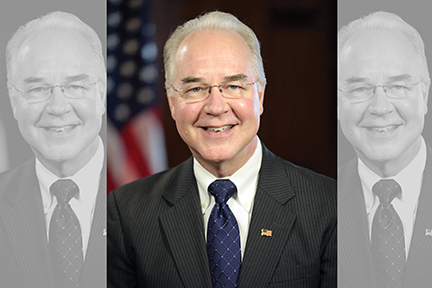Prioritizing Education on Smoke-Free Alternatives
By Dr. Tom Price
The recent marketing authorization by the U.S. Food and Drug Administration (FDA) of 20 Zyn nicotine pouch products is a good step forward in building a more robust market for smoke-free nicotine and tobacco products. This critical decision, coupled with the Trump administration, U.S. Health and Human Services (HHS) Secretary Robert F. Kennedy, Jr. and expected FDA Commissioner Marty Makary’s stated priority to “Make America Healthy Again,” foretells an emerging regulatory landscape in the U.S. that presents a meaningful opportunity to expand access to smoke-free products that can help adults who smoke make the switch away from cigarettes.
This paradigm shift has been a long time coming, and I am thrilled to see it happening in real time. Now, it is time for the FDA to step up its education efforts—with both consumers as well as the medical community—to raise awareness of these products and how, although not risk free, they are a better choice than continuing to smoke or using other traditional tobacco products.
In clearing the FDA’s extensive premarket tobacco product application (PMTA) process, which includes years of scientific review, ZYN became the first and only FDA-authorized nicotine pouch in the U.S. In the FDA’s announcement, the Director of the Office of Science at the FDA’s Center for Tobacco Products (CTP), Matthew Farrelly, Ph.D., noted that these “products offer greater benefits to population health than they do risks,” and the data shows that ZYN nicotine pouches “meet that bar by benefitting adults who use cigarettes and/or smokeless tobacco products and completely switch to these products.”
While this should be good news for the 45 million American nicotine consumers, there is still more work for the FDA to do to clearly illustrate the potential benefits of nicotine pouches and other smoke-free products to consumers and medical experts alike. However, that will require clearing up a long history of misinformation.
According to the FDA, it is not nicotine but a toxic mix of chemicals contained in tobacco and tobacco smoke that drives the serious health threats facing tobacco users. Despite the science proving that smoke-free products represent a better option compared to smoking, various groups, such as the American Lung Association (ALA), continue to spread misinformation about the potential benefits of Zyn nicotine pouches for smokers and other tobacco users, directly contradicting the FDA and scientific evidence.
Even America’s medical community seems flummoxed by what should be a clear distinction between nicotine consumption and the serious side effects tied to cigarette smoking. According to one study, 60 percent of nurses mistakenly believe that nicotine causes cancer. Another one found that more than 80 percent of physicians “strongly agreed” that nicotine “directly contributes to the development of cardiovascular disease (83.2 percent), chronic obstructive pulmonary disease (COPD) (80.9 percent), and cancer (80.5 percent).”
Of course, none of this is true, underscoring the dire need for the FDA and CTP to prioritize educating the public and medical community with accurate information about the vital role smoke-free products could play in helping Americans who smoke to reduce their exposure to harm.
CTP Director Brian King, Ph.D., M.P.H., recently acknowledged as much, saying that “misperceptions among physicians and other healthcare professionals” may result in advising patients in a manner that is “not consistent with existing scientific evidence.” Moreover, he continued, these “misperceptions are associated with lower odds of completely transitioning from cigarettes” to a noncombustible product.
While misinformation abounds, there is still some hope. Even passionate anti-smoking groups, such as the Truth Initiative, have—to some degree—begun to acknowledge the benefits of nicotine pouches, noting that the FDA’s authorization of ZYN nicotine pouch products “addresses an ongoing need to provide adults who smoke with access to less harmful alternatives to combustible cigarettes.”
The FDA and CTP may be well aware of the misperceptions behind smoke-free products. Still, neither has taken meaningful action to counter the spread of misinformation with proper, accurate education for healthcare providers and adults who smoke. That must change, and it must change soon.
The FDA has a responsibility to not only help provide adults who smoke with more smoke-free options, but also to ensure the medical community and public at large understand the benefits and risk these products provide—both in terms of personal and public health. Recent events have made me hopeful that, together, we can build a healthier country, but the FDA and CTP must lead the way there.
Tom Price, M.D., was the 23rd Secretary of the U.S. Department of Health and Human Services and is a former member of Congress (GA06), and an advisor to PMI U.S. Corporate Services Inc.




